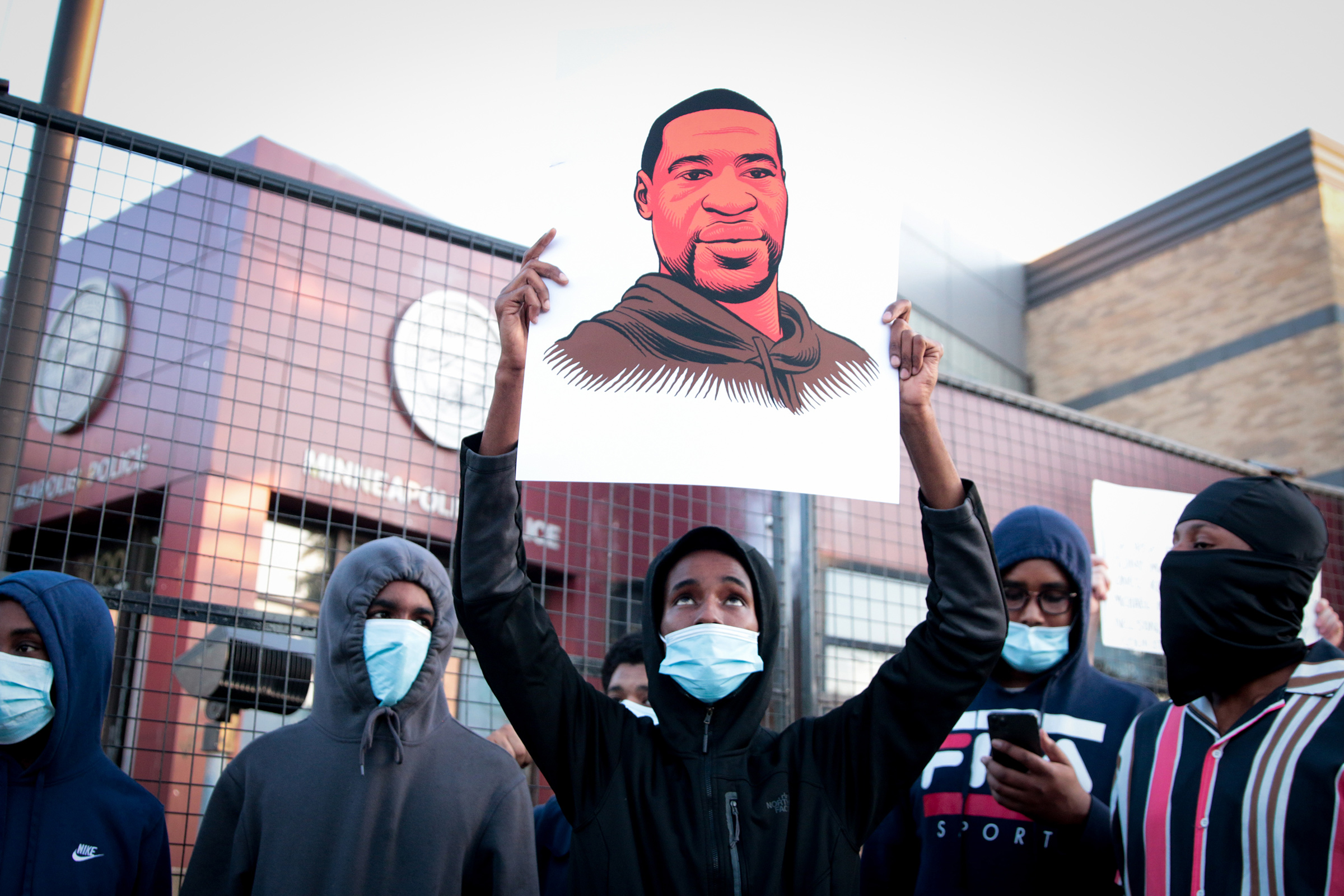
As protests spring up across the country and around the world in response to the video of George Floyd’s murder, there seems to be some confusion about why this moment, this death at the hands of police, has sparked so much outrage. And if it were an isolated incident, that would make sense. But Black death at the hands of the state is unfortunately at least as American as apple pie.
Throughout our lives, Black Americans are dehumanized, treated as unequal, deemed less valuable by the systems that purport to be for all people. Black life is so utterly disregarded that many Americans seem to have normalized the idea that someone deserves to die for possibly using a counterfeit $20 bill to buy cigarettes. Or being asleep in their own home, as Breonna Taylor was when police killed her in March. Or coming from an impoverished community. Or not having the resources financially or physically to survive a natural disaster or a pandemic.
Today, we’re talking about America failing to keep its promises to itself about being the land of the free by examining once again this awful legacy of racism and brutality in policing. Sadly, this is just one example of America failing its own people. Black Americans are more likely to be unemployed, and those who do have jobs earn less than their white peers and are more likely to work in jobs only now deemed “essential” that expose them to serious health risks. Black Americans are dying from COVID-19 at disproportionate rates, but even before the pandemic hit, our health outcomes were not good: we have the highest maternal mortality rates and are more likely to have diabetes and high blood pressure. We also have a poverty rate more than double that of white Americans.
None of this is coincidence. Despite claims that Black people in America are not trying hard enough, a lack of individual effort is not the issue. Instead, structural barriers, coupled with racism and indifference, continue to hold Black people back. Black lives matter–even those lives that do not fit into a narrow mold of respectability–but many people don’t believe that they do, at least not as much as other lives.
If we are to change things, communities that lack basic resources must have their needs met rather than being told that wanting an equal playing field is asking for a handout. Police reform must go beyond implicit bias training and into demilitarization and defunding. The criminal-justice system must cease to be Big Business, relying on private policing and private jails. We have created systems of oppression, and then we object when the targets of that oppression dare to say they have a right to exist, to be safe, to not be killed on a whim.
At some point, America will stop lying to itself, not just about the history of oppression inside and outside our borders, but also about current events. Sometimes, hate wears a white hood. Sometimes, it is in a police uniform. American exceptionalism will not save us from the impact of fascism, and despite every victim-blaming narrative that positions the protests now as being excessive, the reality is that there is no right way to fight for your life and the lives of those you love. If Blackness, Black people and Black culture were erased, not only would the world be poorer for it, but no one left would be any safer. They would just be the next target.
More Must-Reads from TIME
- How Donald Trump Won
- The Best Inventions of 2024
- Why Sleep Is the Key to Living Longer
- Robert Zemeckis Just Wants to Move You
- How to Break 8 Toxic Communication Habits
- Nicola Coughlan Bet on Herself—And Won
- Why Vinegar Is So Good for You
- Meet TIME's Newest Class of Next Generation Leaders
Contact us at letters@time.com